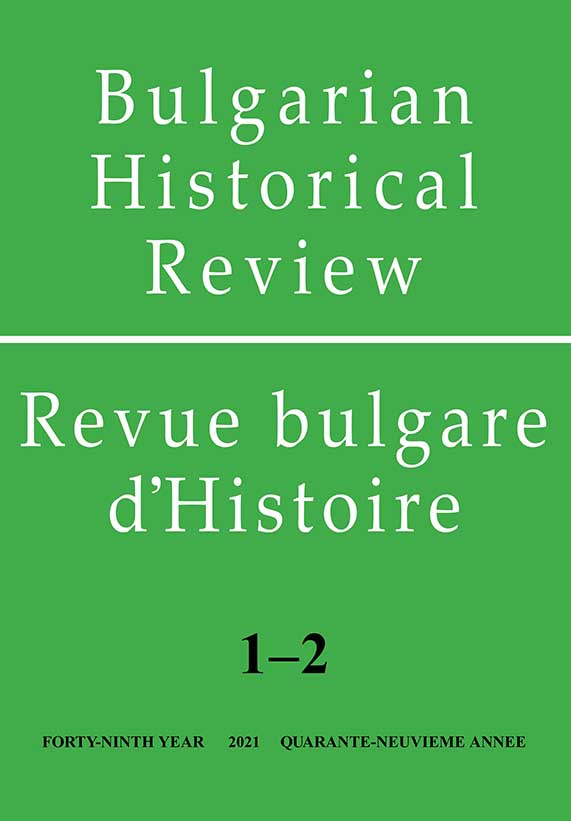The Bulgarian-Greek Easter in 1911: Festive Spirit and Daily Politics
The Bulgarian-Greek Easter in 1911: Festive Spirit and Daily Politics
Author(s): Zorka ParvanovaSubject(s): History, Diplomatic history, Political history, Recent History (1900 till today), Special Historiographies:, Pre-WW I & WW I (1900 -1919), The Ottoman Empire, Historical revisionism
Published by: Институт за исторически изследвания - Българска академия на науките
Keywords: Bulgarian-Greek relations; Bulgarian-Greek rapprochement; Christian holidays;
Summary/Abstract: The article examines Bulgarian-Greek relations in the process of rapprochement after 1909 through the prism of public attitudes and moods. Under the pressure of the extremist Ottoman policy of the Young Turk regime in Constantinople, the governments in Athens and Sofia were forced to find a way to overcome their deep mutual contradictions. The achievement of a cooperation agreement in the name of their equally endangered national interests went through reconciliation between the Ecumenical Patriarchate and the Bulgarian Exarchate, the Greek and Bulgarian deputies in the Ottoman Parliament, the national organizations of the two communities in the European provinces, the public opinion in both countries. The spring Christian holidays in 1911 gave rise to a new spirit in the relations between Bulgarians and Greeks, a vivid illustration of which are two events – the Easter visit of Bulgarian students to Athens and the joint celebration of the May Day Flower Festival in Serres. However, the inertia of decades of mistrust, suspicion and conflict predetermined the ambiguous reaction in the various circles of Greek and Bulgarian society to the emerging and, as it has turned out, very fragile union.
Journal: Bulgarian Historical Review / Revue Bulgare d'Histoire
- Issue Year: 2021
- Issue No: 1-2
- Page Range: 64-81
- Page Count: 18
- Language: English
- Content File-PDF

